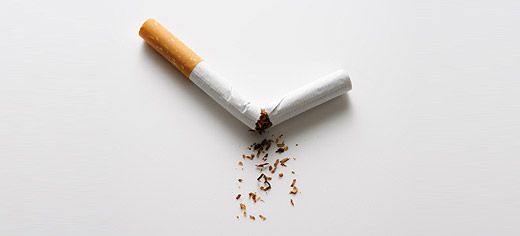
A new resource to help Muslim religious teachers educate their communities about the health risks of second hand smoke and the importance of having a smoke-free home is being launched in Leeds.
Researchers from the University of Leeds have worked with NHS Leeds and the Association for Social Development in Pakistan to develop the Smoke Free Homes guide for Muslim religious teachers. The project has been supported by imams, madrassa (specialist religious school) teachers, Qur'an teachers, leaders of women's circles and members of the public in the UK and Pakistan.
The resource pack will help Muslim religious teachers to work within their communities to reduce the risk of serious health complications caused by living in a home that is not smoke free. The pack includes activities for children and young people, information leaflets for the wider community and a guide for Muslim teachers.
John Lawlor, Chief Executive for NHS Leeds, said: "I'm delighted that all the hard work that has gone into developing this innovative resource has paid dividends. I want to thank all our partners who have been involved in developing the project as well as the support we have received from members of the public here in Leeds and in Pakistan. I know that the Smoke Free Homes project in Leeds has been recognised nationally and internationally. This demonstrates the value of partnership working."
Exposure to second hand smoke is particularly harmful for children and babies as it can cause cot death, asthma, chest and ear infections. In addition, children who are routinely exposed to smoking in the home are more likely to become smokers in their teenage years. Unborn children can also be affected as exposure to second hand smoke during pregnancy can lead to low birth weight.
University of Leeds researcher, Dr Kamran Siddiqi, said: "Despite the Government's ban on smoking in public places, children, pregnant women and adults who don't smoke are still at risk from exposure to cigarette smoke in their own homes and those of friends and relatives. This is an important public health message and one that needs to be communicated to all groups, particularly those at greatest risk."
Dr Ian Cameron, Director of Public Health for Leeds, said: "Every year, millions of people around the world die and millions more become ill as a result of smoking tobacco. Although many people in the UK understand that smoking is harmful to the health of smokers themselves, the dangers of tobacco smoke for non smokers is less well understood.
"We hope that by working with Muslim religious teachers we can highlight these dangers to the community. Our research shows that there are a higher proportion of smokers of Muslim origin who smoke within the home than the wider population."
The Smoke Free Homes guide for Muslim religious teachers is being launched at the Makkah Mosque in Hyde Park on Wednesday 19 October at 5.00pm..
For further information:
Contact: Shak Rafiq, Communications Officer, NHS Leeds. Tel: 0113 305 7496 or 0113 305 7505, email: shak.rafiq@nhsleeds.nhs.uk
Please contact the University of Leeds Press Office on +44 (0)113 343 4031 or email pressoffice@leeds.ac.uk
What is a Smoke Free Home?
A Smoke Free Home is a home in which adults have promised not to allow smoking inside their houses and in front of children.
Steps to a Smoke Free Home
- Step one. Smokers should never use tobacco in front of children. They should keep tobacco products out of sight and empty ashtrays immediately after tobacco use. Always wash your hands after smoking.
- Step two. Smokers should only smoke in one room with the windows open.
- Step three. Smokers should only smoke outside the house and always ask visitors to smoke outside.
What is second hand smoke?
Second hand smoke is the smoke that is coming from the burning end of a cigarette, cigar or pipe. It is also smoke that a smoker is breathing out from their mouth.
Second hand smoke is harmful for pregnant women
Smoking or breathing in second hand smoke during pregnancy can lead to an increased risk of babies being born dead (stillbirth), being born too early and being born with a low birth weight. Babies who live in houses where people smoke are at increased risk of dying suddenly, this is also called cot death.
Second hand smoke is harmful for children
Children are particularly badly affected by second hand smoke. They are more likely to have breathing problems than children who do not breathe second hand smoke. They are more likely to get infections. They are also at risk of developing cancers later on in their lives. Children are more likely to be admitted to hospital if they have parents that smoke than other children and can develop problems in terms of their behaviour and achievement.